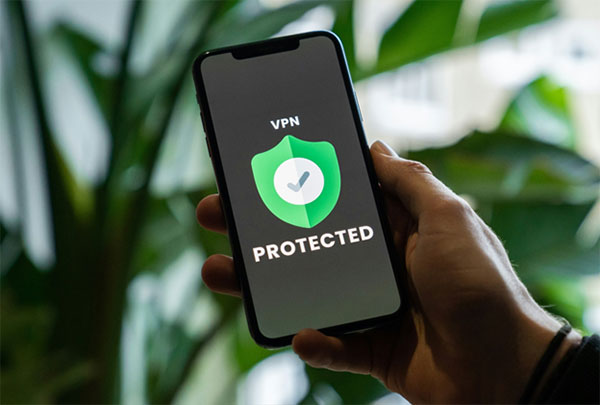| |
| Compliance Checklist: Everything You Need To Know In 2024 |
| |
| |
|
Step into the modern digital industries of 2024. You will find an era dominated by data privacy concerns. As well as a vast array of regulatory compliance mandates.
All modern businesses face a new exciting challenge. They have to deal with complex data security and privacy laws. All the while ensuring seamless company operations.
New cyber threats are constantly emerging in this digital realm. Most wise organizations now use several measures to safeguard their data assets. Many of these are enacted to comply with regulations such as the California Consumer Privacy Act (CCPA).
In this article, we explore the pitfalls and challenges of compliance facing all business owners.
Fasten your seatbelt! The journey begins now.
|
| |

|
| |
| |
|
It seems obvious, but today's modern digital industries need advanced data security. As a result, your business will have to comply with various global data privacy laws. These laws include:
- California Consumer Privacy Act (CCPA)
- General Data Protection Regulation (GDPR)
- Lei Geral de Proteção de Dados (LGPD)
- Personal Information Protection and Electronic Documents Act (PIPEDA)
|
| |
|
|
The California Consumer Privacy Act (CCPA) is a comprehensive data privacy law. It grants California residents specific rights over their personal information. It also outlines detailed requirements for all businesses that collect or process data.
Under the CCPA, consumers have the right to:
- Know what personal information businesses collect about them
- Request deletion of their personal information
- Opt out of the sale of their personal information
Naturally, if you implement all CCPA recommendations your businesses will easily protect consumer data. These regulations also ensure reduced risk of data breaches and regulatory penalties.
One key aspect of CCPA compliance is ensuring your company uses a CCPA compliance platform. These platforms will provide your business with the tools and frameworks necessary to stick to CCPA requirements. Such as:
- Data transparency
- Consumer rights management
- Data breach response protocols
Using these CCPA compliance platforms makes it exceptionally easy to adhere to the CCPA requirements
|
| |
|
|
A Data Subject Access Request (DSAR) is a legal mechanism. One that allows customers to request access to the personal information that an organization holds about them.
DSARs ensure consumers can exercise their data privacy rights. It also creates a sense of transparency and accountability in businesses. Particularly when handling personal data.
It might seem daunting at first but, DSARs are more than just a regulatory requirement. They are a golden opportunity to advance your data security and build trust with consumers. To stay ahead of the curve you must respond to DSARs immediately and accurately.
This way your business can demonstrate its deep commitment to data privacy. Additionally, DSARs also help you to identify any vulnerabilities in your data handling processes. They will strengthen your overall data security measures.
|
| |
| |
|
|
Passwords have become a daily requirement in the fast-paced world of business. Of course, it is essential to guard these passwords to protect your data and systems. However, in the event that you lose them, you must be able to perform password recovery procedures.
|
| |

|
| |
|
|
Passwords are like the digital guardians of your digital realm. In 2024 your business needs to get to grips with this new password security.
We suggest that you implement a safe password policy. This should include the requirements for the passwords:
- Complexity
- Length
- Regular rotation
Additionally, you need to provide your employees with training on password best practices. You will need to emphasize the importance of strong authentication measures within your company.
|
| |
|
Are you struggling with password recovery complexities? It's time to simplify with multi-factor authentication. This type of authentication requires users to verify their identity through multiple methods. Some of these methods include:
- Codes sent to their mobile devices
- Biometric scans
- Fingerprint scans
If you ever lose access to your passwords these methods will help you gain entry back into your systems rapidly. This extra layer of security to password recovery processes ensures that only authorized individuals can regain access to your accounts.
Password recovery technology offers a myriad of tools and techniques to you as a business owner.
|
| |
|
|
Are you seeking to enhance password security? Look no further!
You need to encourage the use of password managers within your organization. Password managers provide a secure and convenient solution for:
- Generating complex passwords
- Storing complex passwords
- Reducing the risk of password-related vulnerabilities.
As a result, we recommend that you conduct regular security audits. These will help you identify weak passwords. As well as enforcing policies for password expiration and account lockouts. By taking these proactive steps, you can fortify your defenses against unauthorized access.
|
| |
| |
|
|
Along with password security, network security is also essential to protect your sensitive information. It also helps your business comply with data privacy laws.
|
| |

|
| |
|
|
These cutting-edge network security tools are vital to safeguard your business's sensitive data. Additionally, they ensure compliance with regulations such as the CCPA.
A very popular trend in business has seen the adoption of advanced threat detection systems. These advanced systems use machine learning algorithms to identify and reduce potential security threats. All done in real-time.
Many wise organizations are also using encryption technologies, such as:
- VPNs (Virtual Private Networks)
- AES (Advanced Encryption Standard)
- SSL/TLS protocols
These will help secure data transmission over your networks. Now you can have peace of mind that your network is safe and sound!
|
| |
|
Next-generation firewalls (NGFWs) have become vital tools for modern companies. They set out to secure your networks and systems. This is achieved by stopping unauthorized access to any of your data. Traditional firewalls fall short of NGFWs in many ways. They offer advanced features such as:
- Application-level filtering
- Intrusion prevention
- Integrated threat intelligence
These features work together to provide protection against new cyber threats. As you can see, using these NGFWs in your company will ensure your policies comply with the rules set out in the CCPA.
|
| |
|
|
NGFWs offer advanced application-level filtering capabilities. These allow your business to precisely control which applications are permitted to access the network. And what actions these applications can perform.
Using these filters can greatly help your organization. As well as allowing trusted applications to access sensitive data covered by the CCPA.
This granular control helps stop the risk of unauthorized data access. This includes exfiltration through unapproved applications. All of these measures contribute to compliance with CCPA's data protection mandates.
|
|
|
| |
|
|
NGFWs come equipped with modern intrusion prevention systems (IPS) as default. These unique systems continuously monitor network traffic. They are always looking for signs of malicious activity or potential security threats.
These systems use threat intelligence feeds in symbiotic harmony with advanced detection algorithms. These can identify and block suspicious traffic patterns. Especially when they have all the classic indicators of cyber attacks or unauthorized access attempts.
These NGFWs help your business meet the CCPA's requirements. This includes the implementation of all reasonable security measures. These measures are vital when protecting your sensitive data.
|
| |
|
|
The CCPA has set out regulations for businesses to have secure remote access to any corporate network. Indeed it has become a crucial aspect for your business to comply with the CCPA's data protection requirements. This is particularly true as we are seeing the increasing popularity of remote work.
Virtual private network (VPN) systems are now built into NGFWs. These VPNs will help your employees to connect to your corporate network from any remote location. They do this by encrypting the data transmitted over public networks.
|
| |
| |
|
Smart business owners always develop comprehensive data privacy policies. These are essential for legal security and CCPA compliance. We suggest that you establish clear guidelines for:
- Data collection
- Processing
- Storage
- Sharing
You will need to define procedures for handling data subject requests. In accordance with the CCPA, these will include:
- Access
- Deletion
- Opt-out requests
|
| |
|
|
Data Protection Impact Assessments (DPIAs) are used to assess the potential risks to data storage. They also examine the processing of personal data on individuals' privacy rights. DPIAs help identify and assess the potential risks associated with data processing activities.
Performing these DPIAs will help your business identify areas for improvement.
|
| |

|
| |
| |
|
|
In the modern digital industries, your journey towards compliance with laws like the CCPA will be an ongoing endeavor.
As we've explored the intricate web of legal requirements one thing becomes abundantly clear. The power to safeguard your sensitive data lies firmly within your grasp. Using the latest advancements in network security and data protection will assist your business in meeting regulatory standards.
Why wait? Strike while the iron is hot! Forge ahead with determination and ingenuity.
Are you ready to pave the way for a future? One where privacy takes center stage. Let's embark on this transformative journey together. As we become champions of data integrity and guardians of consumer rights.
|
| |
| |
|
|
|
| |
| |
| |
| |
| |
| |